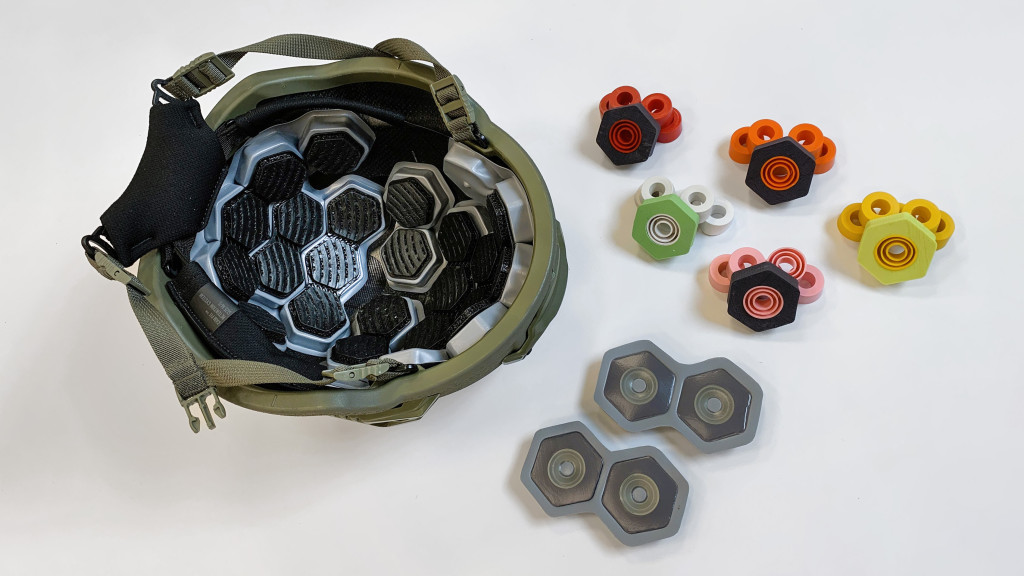With $15M boost from U.S. Navy, engineers will help detect, prevent traumatic brain injuries

The new helmet liner system prototype that Team Wendy manufactured as a direct outcome from PANTHER research. The liner system is designed to provide enhanced protection against traumatic brain injury. Photo courtesy of Team Wendy
With new funding from the U.S. Office of Naval Research, an interdisciplinary initiative led by the University of Wisconsin–Madison will continue to grow its research on concussions and other traumatic brain injuries.
Christian Franck, a professor of mechanical engineering at UW–Madison, started the initiative, called PANTHER, in 2017. Under his leadership, it has grown to include more than 30 principal investigators nationwide, bringing together scientists from academia, industry and government to study traumatic brain injuries through a range of approaches.

Christian Franck
The U.S. Office of Naval Research has awarded PANTHER new grants totaling $15 million, allowing the researchers to advance their groundbreaking work in developing better technologies for detecting and preventing traumatic brain injuries.
The initiative’s researchers work closely with industry partners to rapidly translate fundamental scientific discoveries from the lab into next-generation consumer products that will protect the brain from injury. Franck says exciting developments are beginning to emerge from these industry partnerships.
For example, helmet manufacturer Team Wendy has developed a prototype of a more protective helmet liner that’s informed by PANTHER research results. And industry partners Trek Bicycle and Milwaukee Tool each have new helmets in development that incorporate insights from PANTHER researchers.
“These grants really allow us to deepen our collaboration with industry partners and will lead to even more advances that can enable safer helmets and protective gear not only for our military personnel but also for the public,” Franck says. “I’m very excited by the potential of this initiative to provide better solutions for preventing traumatic brain injury that everyone can access.”
Part of the new funding will allow Team Wendy to establish an infrastructure to improve the ballistic performance of helmets for the military. Researchers will work with Team Wendy to develop better ballistic standards for helmets and create materials that provide enhanced protection against bullets.
“I’m especially grateful for the efforts of U.S. Sen. Tammy Baldwin and U.S. Rep. Mark Pocan from Wisconsin and U.S. Rep. Marcy Kaptur from Ohio, who represents the congressional district where Team Wendy is based, in helping to secure this new funding for the PANTHER program,” Franck says. “Their continued support is instrumental in ensuring that this innovative program can make a real difference in improving people’s lives.”
Editor’s note: This story was updated on Nov. 20, 2023 to focus on the research related to developing protective equipment.
Additional partners in PANTHER include researchers from Brown University, Robert Morris University, Colorado School of Mines, the University of Texas, Arlington, the University of Southern California, Iowa State University, UC Santa Barbara, Johns Hopkins University, Washington University in St. Louis, and Sandia National Laboratories.
Enjoy this story?
Read more news from the College of EngineeringTags: College of Engineering, outreach, veterans
